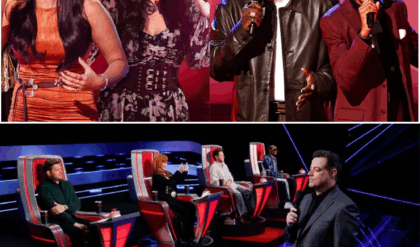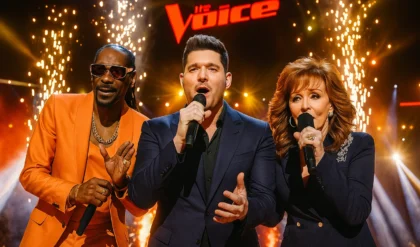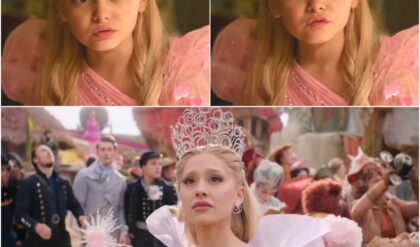Introduction: A Voice for the Marginalized
In a world where visibility and representation can shape societal perceptions, Jodie Foster, a Hollywood icon and two-time Academy Award winner, has often been a figure of both admiration and scrutiny. Known for her roles in films like The Silence of the Lambs and Taxi Driver, Foster has also been a significant, albeit private, voice in the LGBTQ+ community. One of her most poignant statements, “We have come to show this community that gay people, and gay positive icons such as myself, are made of the same flesh and blood as they are,” encapsulates her perspective on the shared humanity that transcends sexual orientation. This article delves into the context of this statement, its implications for the LGBTQ+ community, and Foster’s evolving role as a public figure advocating for equality and understanding.
The Context of the Quote: A Reflection on Foster’s Journey
Jodie Foster’s journey in the public eye began at the tender age of three, when she started acting in commercials. Her career, spanning over five decades, has been marked by critical acclaim and a steadfast commitment to privacy. Despite her fame, Foster has often shied away from discussing her personal life, particularly her sexual orientation. This reticence was not born out of shame but rather a desire to maintain a semblance of normalcy in a life constantly under scrutiny. However, in 2013, during her acceptance speech for the Cecil B. DeMille Award at the Golden Globes, Foster addressed her sexuality publicly for the first time in a significant way, albeit indirectly. She spoke of coming out “a thousand years ago, back in the Stone Age,” to her close circle, emphasizing her value of privacy over public declaration.
It was in this context that the quote in question emerged, as reported by Patrick Strudwick in The Guardian in 2013. Foster’s words were a powerful assertion of her identity as a gay woman and a public figure, aimed at bridging the gap between the LGBTQ+ community and the broader public. The statement reflects her intent to humanize gay individuals, emphasizing that they are not “other” but part of the same human fabric as everyone else. This message was particularly resonant at a time when the fight for marriage equality and broader LGBTQ+ rights was gaining momentum in the United States and globally.
The Significance of Shared Humanity
Foster’s declaration, “We have come to show this community that gay people, and gay positive icons such as myself, are made of the same flesh and blood as they are,” strikes at the heart of a fundamental issue in the struggle for LGBTQ+ rights: the perception of difference. Historically, marginalized groups, including gay individuals, have been dehumanized through stereotypes and exclusionary narratives. By asserting her shared humanity, Foster challenges these narratives, inviting society to see gay people not as a separate entity but as neighbors, friends, and family members who share the same emotions, struggles, and aspirations.
This message was particularly powerful coming from Foster, whose career has been defined by her ability to portray complex, relatable characters. Her roles often depict resilience and vulnerability, qualities that resonate universally. By aligning herself with the LGBTQ+ community in this way, Foster leverages her platform to dismantle the barriers of misunderstanding. Her words suggest that visibility—particularly from someone of her stature—can foster empathy and acceptance, encouraging others to see beyond labels and recognize the commonalities that unite us.
Foster’s Role as a Gay Positive Icon
The phrase “gay positive icons such as myself” in Foster’s statement is noteworthy. It positions her not just as a member of the LGBTQ+ community but as a figure who actively supports and uplifts it. However, Foster’s relationship with this role has been complex. For years, she faced criticism from some activists for not being more vocal about her sexuality. As noted in various sources, including a 2013 article from The Advocate, some felt that Foster’s reluctance to publicly come out earlier in her career meant she missed opportunities to be a role model for struggling gay youth. Others, however, defended her right to privacy, arguing that coming out is a personal journey and that public figures should not be obligated to become activists.
Foster’s eventual public acknowledgment of her sexuality, culminating in her 2013 Golden Globes speech, was a turning point. While she never explicitly said the words “I’m gay,” her speech was widely interpreted as a coming-out moment. She spoke of her ex-partner Cydney Bernard as her “heroic co-parent” and “righteous soul sister,” and celebrated their “modern family” with their sons, Charlie and Kit. This moment, followed by her marriage to Alexandra Hedison in 2014, solidified her status as a visible member of the LGBTQ+ community. Her quote about showing the community that gay people are “made of the same flesh and blood” further cements her role as a “gay positive icon”—someone who uses her influence to advocate for acceptance, even if on her own terms.
The Broader Impact on the LGBTQ+ Community
Foster’s statement and her broader journey have had a significant impact on the LGBTQ+ community, particularly in the realm of visibility. In 2013, when she made her speech, the landscape for LGBTQ+ rights was shifting rapidly. The U.S. Supreme Court was preparing to hear cases that would eventually lead to the legalization of same-sex marriage in 2015. Public figures like Foster coming out—or at least publicly acknowledging their place in the community—played a crucial role in normalizing gay identities. As Dustin Lance Black, the screenwriter of Milk, noted in a 2013 article by TheWrap, Foster’s speech sent a message that “we are everyone and everywhere,” reinforcing the idea that gay individuals are integral to society.
Moreover, Foster’s emphasis on shared humanity resonates with younger generations who are growing up in a more accepting world but still face challenges. Her words remind us that even as progress is made, the fight for full equality continues. Issues like discrimination, mental health struggles among LGBTQ+ youth, and legislative battles over trans rights highlight the ongoing need for visibility and advocacy. Foster’s statement serves as a call to action, urging society to move beyond tolerance to true acceptance, where being gay is seen as just one facet of a person’s identity, not a defining characteristic that sets them apart.
Critiques and Reflections: A Balanced Perspective
While Foster’s statement and her public acknowledgment of her sexuality have been largely celebrated, they have not been without critique. Some activists, as noted in a 2013 HuffPost article, felt that her coming out was “too little, too late,” arguing that she could have made a greater impact by being open earlier in her career. Others, like Harvey Fierstein, criticized her for not explicitly using the words “gay” or “lesbian” in her Golden Globes speech, suggesting that her reluctance to do so perpetuated a sense of shame around being gay.
On the other hand, many have praised Foster for coming out on her own terms. As Wilson Cruz, an actor and advocate, stated in a 2013 ABC News article, Foster’s speech sent a “powerful message” to millions of young people that being openly gay can lead to success and recognition. This perspective aligns with the idea that there is no one “right” way to come out, and that each individual’s journey is valid. Foster’s focus on privacy, as she articulated in her speech, also resonates with those who believe that public figures should not be pressured to become activists if it compromises their personal well-being.
Conclusion: A Legacy of Unity and Understanding
Jodie Foster’s statement, “We have come to show this community that gay people, and gay positive icons such as myself, are made of the same flesh and blood as they are,” is more than just a declaration of identity—it is a call for unity and understanding. It reflects her belief in the power of visibility to break down barriers and foster empathy, while also asserting her right to define her own narrative. As a gay positive icon, Foster has navigated the complexities of fame, privacy, and advocacy with a quiet strength that continues to inspire.
Her words remind us that the journey toward equality is not just about legal victories or public declarations, but about the everyday work of humanizing those who have been marginalized. By emphasizing our shared humanity, Foster challenges us to see each other not as “other,” but as part of the same community, bound by the same hopes and dreams. As we move forward in 2025, her message remains as relevant as ever, urging us to continue the fight for a world where everyone can live authentically and be accepted for who they are.





